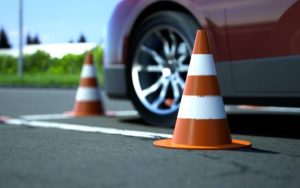Even the best skills and extensive experience in driving won’t spare anyone from the likelihood of an accident if they’re not in the right state of mind. This is because the natural reaction time of every individual varies, and it takes a few moments for someone who’s not in the right state to grasp what’s going on ahead fully, or even around them.
 If you managed to take driving lessons and the EzLicence learners practice test VIC before you got your license, you probably wouldn’t even be here reading this article.
If you managed to take driving lessons and the EzLicence learners practice test VIC before you got your license, you probably wouldn’t even be here reading this article.
Being in the wrong state can be attributed to many different circumstances. In Australia, a study was conducted in February 2014 that found out most drivers at any given time were not in the right state of mind. Some reasons for this include being tired, physically unwell, emotionally distressed, or under the influence.
In Australia’s Victoria State alone, it was found that only one-third of motorists were able to drive straight after drinking alcohol, and only 23% of people were able to drive five minutes after smoking marijuana.
It wasn’t just alcohol and drugs that affected driving capabilities, either. In a separate study conducted by VicRoads’ Dr Ian Gray in August 2014, it was found out that drivers who feel sleepy or tired were more likely to be involved in road accidents.
A total of 80 participants from the study, including drinking alcohol, took part in the simulated driving activity. Half of them were asked to drink two glasses of water and try to stay awake after being told that they would have their vision blurred by a strobe light while they were behind the wheel. The other half were allowed to sleep at their discretion for forty-five minutes.
Drivers who fell asleep during the test had blood alcohol concentrations of .05%, which is still under the legal limit in most countries, but they did not crash due to the influence of drugs or alcohol. Instead, they drove off the road or suddenly hit the brakes.
They also found out that drivers who fell asleep were twice as likely to be involved in a collision or have another “near miss” compared to their well-rested counterparts. The report further states that tiredness is the most common factor leading to road accidents. After drinking alcohol and taking drugs, sleepiness is the second most common cause of accidents in Victoria.
As for emotionally distressed drivers, they often have difficulty focusing on driving. This is because their minds are preoccupied with whatever problem is causing them emotional stress or anxiety. They also tend to speed up when they feel frustrated, which sometimes leads to road rage.
Conversely, physically sick drivers are more likely to have difficulty maintaining their speed or control of the vehicle. They constantly adjust the car’s controls to compensate for their illness, which contributes to more fatigue and difficulty paying attention to the road.
The guidelines on driving while emotionally distressed or physically unwell are similar to driving when you’re feeling sleepy. In all cases, it is best to park your car in a safe place and rest instead of continuing to drive while you’re not in the right state. This would be safer for everyone involved, including yourself.